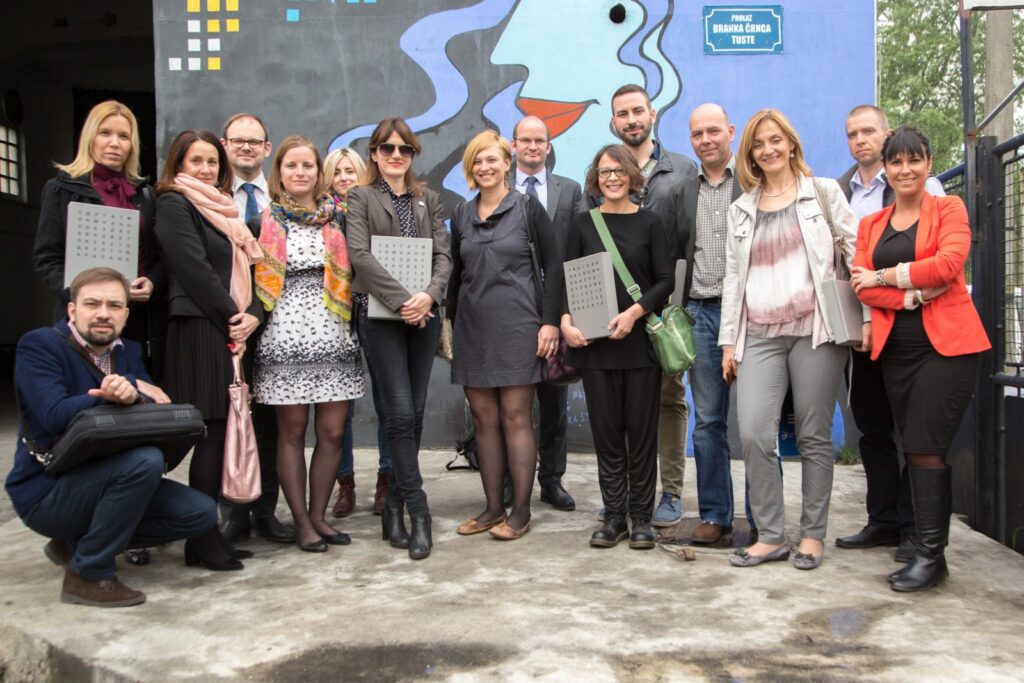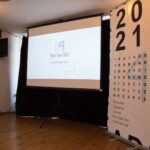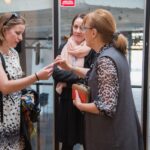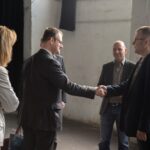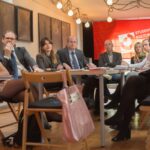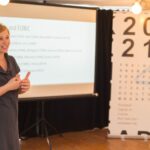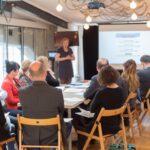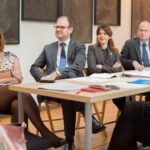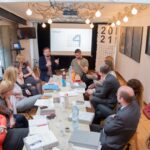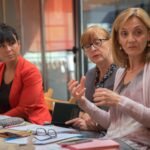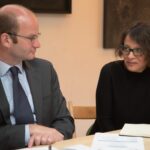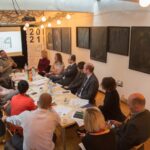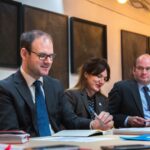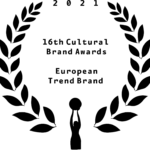The EUNIC-Serbia is a cluster of numerous cultural institutions in the European Union, and an active network that develops and organises several projects each year with the main goal of promoting diversity in culture, language, and education in Europe, and improving cooperation and partnership between Serbia and the EU.
As the EUNIC-Serbia representatives said, whenever someone from Europe contacts them, the first thing they mention, regarding culture in Serbia, is Novi Sad and the European Capital of Culture title, which this city won for 2021. This was a sufficient reason for them to initiate a meeting with members of the ‘Novi Sad 2021’ team. One of the main topics of this meeting was a possibility for cooperation and networking.
Slavica Marković Sandić, coordinator for communication and public diplomacy of the Swedish Embassy in Serbia, and member of the EUNIC-Serbia team, stressed that she is satisfied with the way ‘Novi Sad 2021’ project is shaping up, and that the meeting was crucial because it initiated exchange of ideal and experiences, and a cooperation that has a future.
– If we can, in a way, measure the aspect of sustainability in culture, it is through cooperation, meeting people, and networking, because when you have this human component, when you have meetings ‘one on one’, and discussions on cooperation that are based on meeting people and exchange of experience, then this is the component of sustainability. We met today for the first time, and this is just the beginning. We began discussing in which way, in this and the following years, we can organise cooperation and exchange, both between individual institutions, and between the EUNIC and ‘Novi Sad 2021’ team – Slavica Marković Sandić said, and expressed her hope that the beginning of this cooperation will result in numerous forms of networking, contacts, and friendships in the following years.
In order to illustrate the extent of the effects that the European Capital of Culture title, and development of art and creative industries could have on Novi Sad and Serbia, Slavica Marković Sandić said that although Sweden is famous world-wide for companies such as Volvo and IKEA, its biggest export product in the last few decades was music, and lately even gaming industry.
Vuk Radulović, Manager of the Sector for International Cooperation of the ‘ Novi Sad 2021’ foundation, was also pleased with the meeting with the representatives of the EUNIC-Serbia.
– We have discussed potential modalities of cooperation, which are many, and come up with some preliminary conclusions that are related to projects we intend to implement in the following years, and which would leave their mark after 2021, and, which is more important, continue after that. One of the most important conclusions is that there are numerous similarities in projects of the EUNIC-Serbia, and those we plan to implement in this year. These are, for example, ‘Artists in Residence’ project, and educational trainings in the field of culture and art – Mr Radulović said, and stressed that these common points will be place from which to develop joint cooperation in the future.
After the meeting, the guests from the EUNIC-Serbia, accompanied by the members of the ‘Novi Sad 2021’ foundation, visited the so-called Chinese Quarter. This is the place of the future Youth Creative Polis, a unique youth and creative centre in this part of Europe. It is one of the main infrastructure projects that will be implemented for the purposes of the ECoC project – Novi Sad 2021 and OPENS 2019 European Youth Capital.
The EUNIC-Serbia was founded in 2007, and its members include, among others, Österreichisches Kulturforum Belgrad, Wallonie-Bruxelles International, Institut Français de Serbie, Goethe-Institut Belgrad, Hellenic Foundation for Culture Belgrade, Collegium Hungaricum, Instituto Cervantes de Belgrado, British Council Serbia, Embassies of Finland, the Netherlands, Protugal and Sweden, EU Delegation in Serbia, and the EU Info-centre. The global EUNIC office is located in Brussels, and through its members it has a direct access to leading institutes and experts of the European cultural sector. To date, more than 90 clusters have been formed. They organise large number of events, including conferences, festivals, and debates such as European Literature Night and European Day of Languages.
